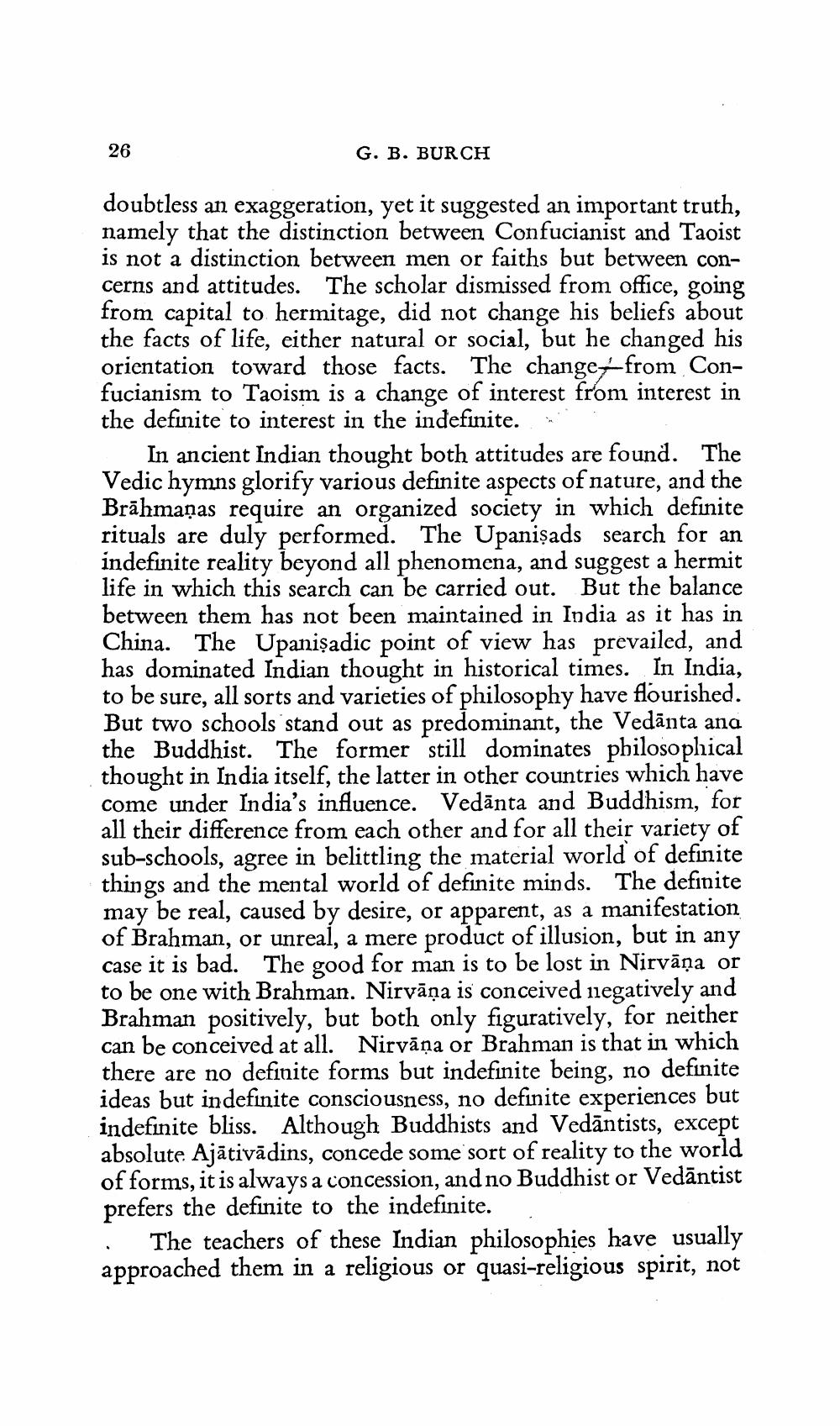Book Title: Definite And Indefinite Author(s): George Burch Publisher: George Burch View full book textPage 2
________________ 26 G. B. BURCH doubtless an exaggeration, yet it suggested an important truth, namely that the distinction between Confucianist and Taoist is not a distinction between men or faiths but between concerns and attitudes. The scholar dismissed from office, going from capital to hermitage, did not change his beliefs about the facts of life, either natural or social, but he changed his orientation toward those facts. The change_from Confucianism to Taoism is a change of interest from interest in the definite to interest in the indefinite. In ancient Indian thought both attitudes are found. The Vedic hymns glorify various definite aspects of nature, and the Brāhmaṇas require an organized society in which definite rituals are duly performed. The Upanișads search for an indefinite reality beyond all phenomena, and suggest a hermit life in which this search can be carried out. But the balance between them has not been maintained in India as it has in China. The Upanişadic point of view has prevailed, and has dominated Indian thought in historical times. In India, to be sure, all sorts and varieties of philosophy have flourished. But two schools stand out as predominant, the Vedānta ana the Buddhist. The former still dominates philosophical thought in India itself, the latter in other countries which have come under India's influence. Vedānta and Buddhism, for all their difference from each other and for all their variety of sub-schools, agree in belittling the material world of definite things and the mental world of definite minds. The definite may be real, caused by desire, or apparent, as a manifestation of Brahman, or unreal, a mere product of illusion, but in any case it is bad. The good for man is to be lost in Nirvāņa or to be one with Brahman. Nirvāṇa is conceived negatively and Brahman positively, but both only figuratively, for neither can be conceived at all. Niryāņa or Brahman is that in which there are no definite forms but indefinite being, no definite ideas but indefinite consciousness, no definite experiences but indefinite bliss. Although Buddhists and Vedāntists, except absolute Ajātivādins, concede some sort of reality to the world of forms, it is always a concession, and no Buddhist or Vedāntist prefers the definite to the indefinite. . The teachers of these Indian philosophies have usually approached them in a religious or quasi-religious spirit, notPage Navigation
1 2 3 4 5 6 7 8 9 10 11 12
